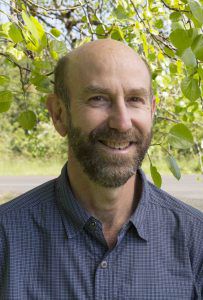
Steven Strauss Seminar: Genome Editing For Biological Containment In Engineered Tree Crops – The Miracle We Have Been Waiting For?
Event Details
Add to Calendar
Location
Energy Biosciences Building, Room 115
Contact
Subscribe to our calendar to stay up to date on all our events.
Tree crops are slow and difficult to breed and thus may benefit from genetic engineering or gene editing (GE). However, tree crops are also weakly domesticated, play keystone roles in ecosystems, have wild or feral interfertile relatives, and can spread pollen and sometimes seed over long distances. This makes public and regulatory approval of commercial varieties—and field and breeding research—extremely difficult. A means for reliable, fail-safe sexual containment could, therefore, have a transformative impact on both the ability to conduct field studies and to commercially deploy new GE varieties.
Gene editing—by enabling the high-frequency mutation of genes critical for sexual reproduction and having the potential for very high predictability and stability—may provide the required technical breakthrough for acceptance of GE tree crops. We have been using CRISPR-Cas9 gene editing to target genes with well-known roles in reproductive development of plants, focusing on LEAFY and AGMOUS genes in the wood/pulp/energy crops poplar and eucalypts. I will show the high efficiency we have generally found at producing biallelic knock-outs in these highly heterozygous species, and the associated phenotypic effects in early flowering trees.
I will also consider the broader social context for the adoption of GE and flowering-modified trees, showing that even with containment acceptance is by no means assured. A combination of fundamental genetic and social innovations—including radical changes to regulatory and market access systems—are likely to be needed before GE trees could make a significant contribution to climate-change associated productivity, stress, and pest challenges.
Genome Editing For Biological Containment
In Engineered Tree Crops:
The Miracle We Have Been Waiting For?
Distinguished Professor, Departments of Forest Ecosystems & Society
Oregon State University
